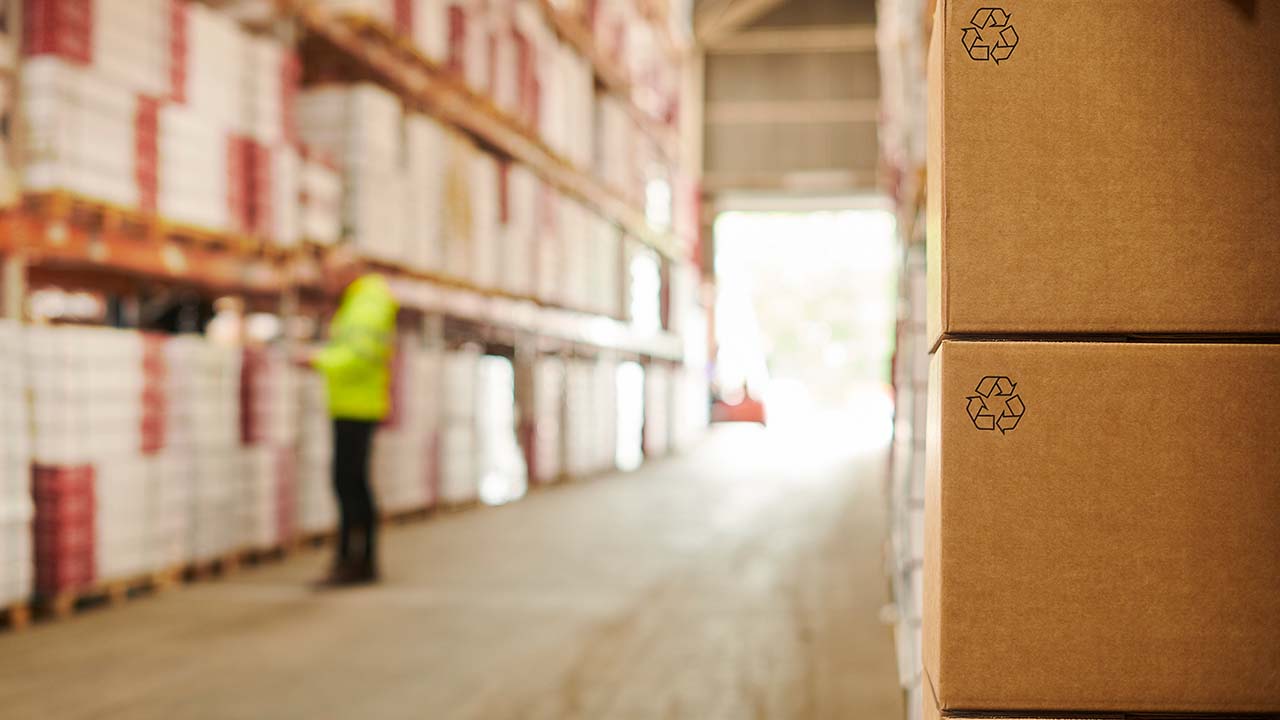In News
Follow this topic
Bookmark
Record learning outcomes
Sustainability and progress to net zero was again the focus of a session at the annual Healthcare Distribution Association (HDA) conference last month, says Rob Darracott
With a recent HDA survey revealing that 70 per cent of distributors’ emissions are transport-related, it’s no surprise to find route optimisation, a move to once a day deliveries and the first electric vehicle route in the sector among the early actions at Sigma Pharmaceuticals.
Mishel Hathiram, head of transport and sustainability, told the conference that Sigma’s sustainability journey has encompassed employee welfare such as mental health and benefits, equality, diversity and community collaboration, as well as changes to its fleet to address climate change.
“Plastic, recycled totes and once a day deliveries along optimised routes has reduced our fuel usage and our emissions,” she said. “We launched the programme with a company ‘sustainability day’ because everybody has to be working together. It’s a big cultural change for the company and the staff – many of them have been with the business for 20, 30 years.”
Staff benefits include the provision of a reflection room to support employee mental health, the appointment of mental health first aiders, and yoga sessions.
After the success of its first electric vehicle route, Sigma is now looking to add others. The whole fleet is now Euro 6 emission standard compliant; the next move will be to fully electric. “Implementing the first once a day deliveries was a big change for us and we had to manage our customers’ expectations,” she said.
“The company has adapted well. We’re now working on our ESG [environmental, social and governance] reporting, which is a big area for our industry, because there is no clear framework that we are working towards. Sustainability is one area where we can all work together and not worry about competition.”
Sigma is now considering the installation of solar panels on buildings, energy supply contracts for renewable energy, waste recycling and is working with Watford Council on infrastructure for electric vehicle charging.
Meanwhile, over at Mawdsleys, director Will Westall, who is a member of the HDA’s net zero group and its Council, said his company’s shareholders were very engaged with the issue of sustainability and had probably pushed the company further than it would have gone by itself. “The NHS roadmap to 2030 sets out what we have to do to conform, but sustainable policies are key to attracting and retaining staff in today’s market,” he said. “Young people coming into the sector are interested in what you are doing as a business.”
The company converted its wholesale fleet from diesel to LPG in the 1990s, but found that to be detrimental to the lifetime of the fleet. Over time, Mawdsleys moved from a purchased to a leased fleet, rotating vehicles every three years to ensure use of the most efficient engines. Customers were offered free waste cardboard collection – a service that continues today for hospital customers.
More recently, the first EV-charging points were installed in Doncaster in 2018, and the first motion sensor lighting in warehouses around the same time. The first fully electric car joined the company’s fleet a year later and segregation of waste paper, plastic and metal started at all office locations. “We joined the global EV100 group, an international collective of like-minded businesses committed to moving to a fully electric fleet in the years to come,” Mr Westall said.
In 2020, Mawdsleys started mounting solar panels on the roofs of its vehicles to run all the auxiliary systems, including temperature control, a feature that is now part of its specification. “These solar panels have reduced our consumption by around five per cent,” Mr Westall added.
A cycle to work scheme became so popular at the Milton Keynes site that the bike racks had to be extended. Mawdsleys began switching to LED lighting too – “the business case is very strong; energy prices have increased now, but when we started, the payback was 18 months”. Refitting windows and better insulation at a site in Salford reduced energy consumption by 15 per cent.
Completed transition
In the last year, the company completed the shift on all sites to energy purchased from REGO (Renewable Energy Guarantee of Origin) suppliers; all sites now include EV charge points and are LED-lit. New software for the HGV fleet optimises route planning and monitors driving styles – Mawdsleys rewards the best performing drivers – as well as capturing data on CO2 emissions.
“There are two key areas we want to focus on in 2023 and beyond – energy reduction and the removal of diesel,” Mr Westall said. “We are currently investing in a 2,000 KWh solar array at our site in Doncaster, alongside a 2MW battery. The objective is that this 300,000sq ft site will become virtually self-sufficient in energy; in the longer-term as we get more electric vehicles, we will be able to charge more of them from the power we create ourselves, and the learning we get from this project will help us roll this out to other sites.”
Alongside electric vans, the first trials of fully electric HGVs are due to start this year, while the company is also exploring the use of hydro-treated vegetable oils in its vehicles and the use of a novel technology in which temperature control is driven by the rotation of the rear axle of a truck.
“There are a lot of hurdles to jump through, but we are certainly up to the challenge of finding out how much a site can contribute to self-sufficiency in its own power,” Mr Westall concluded.

